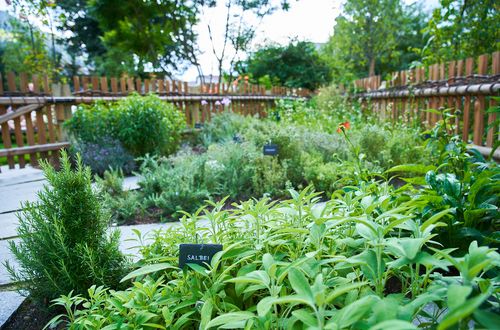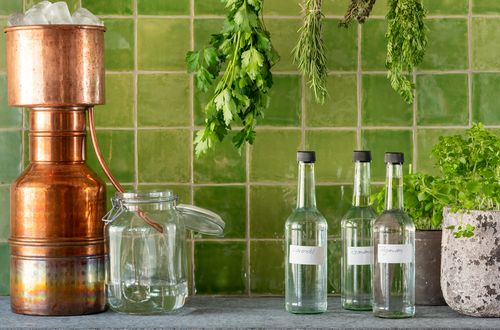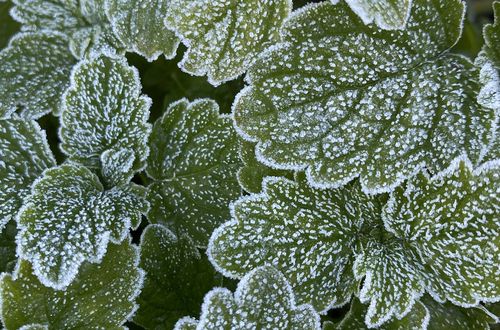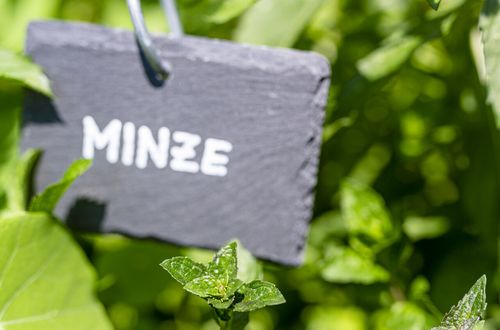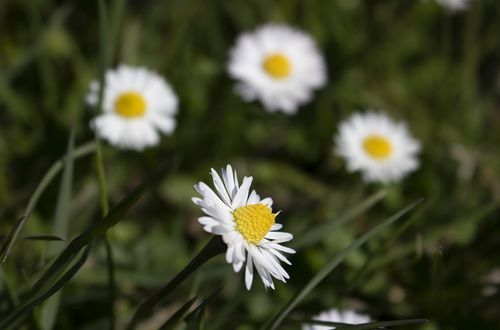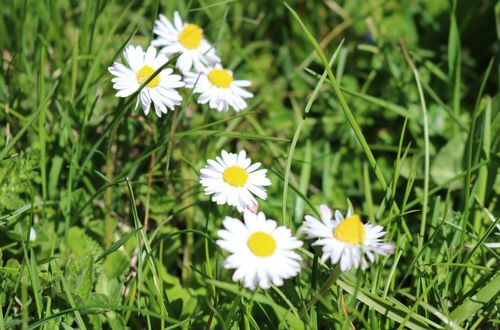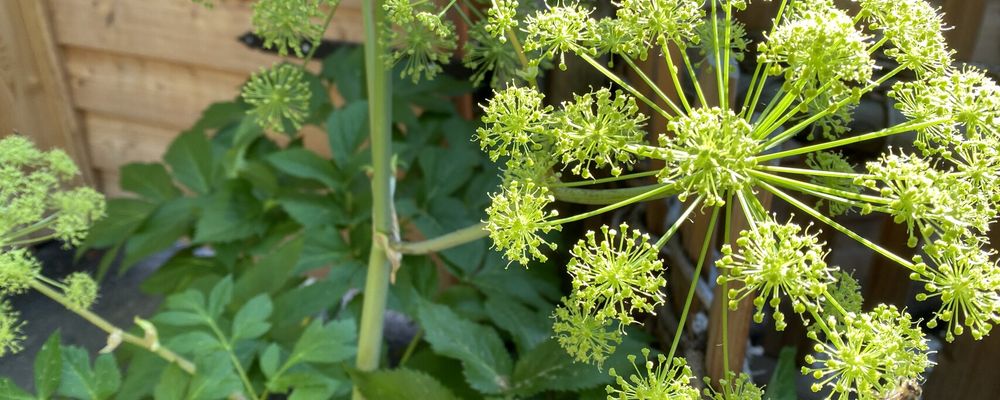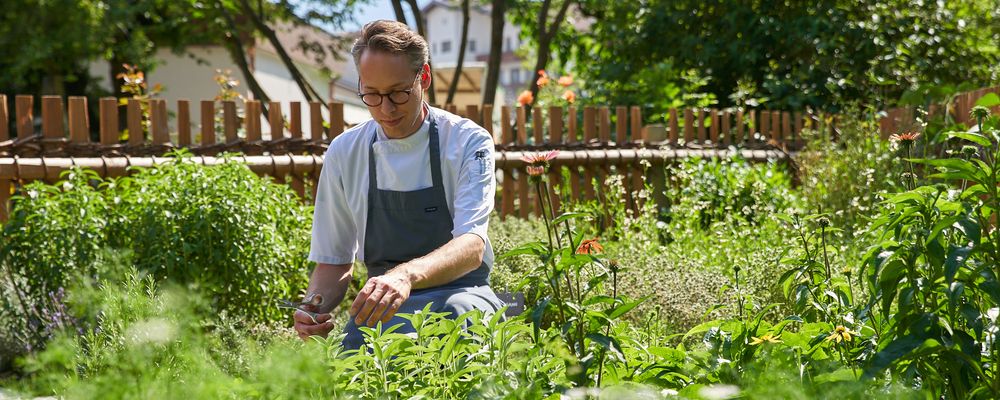Plants for
health, mind, and well-being
Melissa, calendula, bellis, angelica, achillea, lavandula – the different room categories in MalisGarten bear the names of the 6 favorite plants and herbs of host Christina Binder-Egger. From our own garden, they end up on your plate as a healthy, natural taste enhancer, or they are used in the Herbarium Spa.
Lemon balm (lat. Melissa)
Melissa tea, melissa baths, melissa extract - melissa is a real jack of all trades. On the one hand, it supports gastric function and on the other hand, it has a calming and antispasmodic effect. Melissa is also used for skin inflammation. The leaves of the plant have an antiviral and antimicrobial effect and have been used for colds and sleep disorders for as long as anyone can remember.
Marigold (lat. Calendula)
The small, dried flowers of marigold have a long tradition in naturopathy. They promote wound healing and also have an antibacterial effect. For this reason, marigold preparations (teas, extracts, tinctures) are used for skin irritation, rashes, and superficial injuries.
Daisy (lat. Bellis)
Some may only know the daisy as a harbinger of spring in the meadows. The fact that the daisy was selected as the medicinal plant of the year in 2017 makes it clear what hidden talents this popular flower has. The main areas of application: skin disorders, headaches, dizziness, insomnia, coughs.
Fir & spruce (lat. Abies & Picea)
It is no different with wood. Whoever enters MalisGarten will immediately notice the soothing scent of wood and feel the warmth and comfort that emanate from this natural building material. These are the positive effects that you will feel right away.
Angelica (lat. Angelica)
The high proportion of essential oils is responsible for the fact that angelica develops a very strong aroma when prepared as a tea, extract, or salve. For problems with the digestive tract (loss of appetite, feeling of fullness, stomach cramps), this plant works from the inside, and externally it is used for rheumatic pains.
Yarrow (lat. Achillea)
The name says it all with this plant (German "Schafgarge"). "Garbe" is derived from the Old High German word "garwe" and means "make healthy". Soothing, styptic, and anti-inflammatory - these are only a few of the properties of yarrow. The main areas of application are loss of appetite and gastrointestinal complaints. Yarrow is also used for external wound healing and treatment of inflammatory skin diseases.
Lavender (lat. Lavandula)
Lavender flowers not only look beautiful but also provide valuable services for the mind, body, and well-being. It is well known that the scent of lavender drives away moths and aphids, but when processed into ointments or lotions, this plant helps with tiredness, irritability, and lack of concentration and naturally increases a positive attitude towards life.
